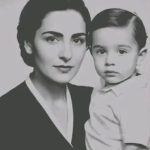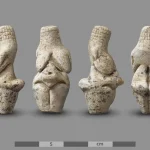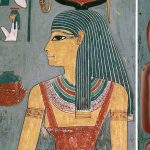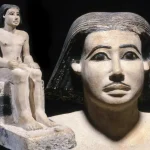The Color of Commitment

Related Videos:
“I’m colorblind,” my dad always joked, a wry smile playing on his lips, whenever I’d ask him the impossible question: “Why me?”

Before Michael Harris, my life was a blur of linoleum floors, hurried goodbyes, and the weight of a suitcase that held everything I owned. I bounced between foster homes—a revolving door of temporary kindness and watchful scrutiny. People saw a checklist: color, age, trouble. They saw a kid who had too many questions and too few answers. No one truly saw me.

Then came Michael. A white Army veteran whose uniform was neatly folded away but whose spirit of service still shone. He had steady hands, quiet strength, and a gaze that seemed to look right through the noise of the world and settle on the quiet potential inside me. When he signed the papers, the ink seemed to seal more than a legal transaction; it forged an unbreakable bond. He didn’t just bring me into his house; he brought me into his life and, from that day forward, he called me his son.

He never spoke about race. Not once. It wasn’t a silence born of avoidance, but a living testament that race simply wasn’t the lens through which he saw the world—or me. Instead, he raised me to stand tall. He taught me the tangible rituals of a man with honor: how to shine my shoes until the leather gleamed like black mirrors, how to keep my word as if it were currency, and how to salute with respect, the snap of my wrist a signal of discipline.

One Saturday afternoon, I’d come home from school with a scraped knee and a sullen mood after a playground spat. “He called me a name,” I mumbled, kicking a stone. Dad didn’t ask what the name was. He just looked at me.
“Son,” he said, his voice the low, steady rumble of a tank engine. “Some people spend their lives defining themselves by what they look like. We define ourselves by what we do. You want to prove them wrong? You don’t do it with your fists. You do it by being the kind of man they can only look up to.” He then handed me a tin of polish and a brush. “Now, let’s get those boots clean. A soldier never goes into battle with dirty gear.” That day, the polish wasn’t just for leather; it was a lesson in self-respect.

Every Memorial Day, we made our pilgrimage. We walked the long, silent rows of the military cemetery. The air was thick with the scent of freshly cut grass and the profound gravity of sacrifice. He wouldn’t talk about his own service much, but here, among the granite markers, he was an open book. He’d stop at random graves, tracing the names with a scarred finger. He whispered that freedom always had a cost and reminded me never to forget the names carved in stone. He wasn’t teaching me history; he was teaching me gratitude and duty.
Years passed, marked by report cards, shared jokes over greasy pizza, and the growing, unspoken certainty of our connection. Then the illness came, a quiet enemy that Michael fought with the same dignity he brought to everything else.

In the hospital, his hand, once so steady, felt thin and fragile in mine. His eyes, though weary, still held that pure, unwavering light. I held onto his hand, the rhythmic beep of the monitor the only sound breaking the silence.
“I’ll carry on, Dad,” I choked out, the words catching in my throat. “I promise.”
He didn’t speak. He just squeezed my hand once, his final, strong gesture of love and trust.
He never saw me take the oath, but he’s with me every day. Now, I wear Navy blues. The uniform is sharp, the shoes are shined until they reflect the sky, and the discipline he instilled is the backbone of my service. And every salute I give, that crisp, perfectly executed gesture of respect, I give for him. It’s not just a gesture to an officer; it’s a silent conversation with Michael Harris, the man who saw beyond color and taught his son how to see the true meaning of honor.











